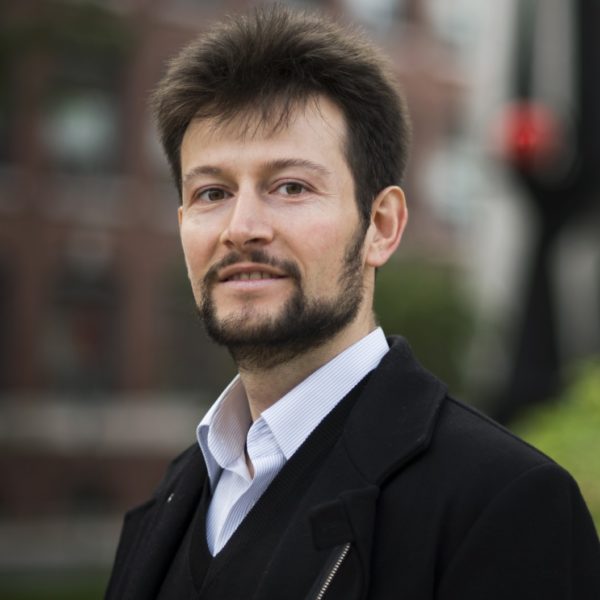About Nikolai Slavov
Allen Distinguished Investigator, Allen Frontiers Group
Director, Single-Cell Proteomics Center
Affiliated Faculty, Department of Biology and Department of Chemistry and Chemical Biology
Faculty Fellow, Barnett Institute
Nikolai Slavov received his undergraduate education from the Massachusetts Institute of Technology (MIT) in 2004. He pursued doctoral research in the Botstein laboratory at Princeton University, aiming to understand how cells coordinate their growth, gene expression, and metabolism. He discovered a simple mechanism that can account for the growth-rate dependent transcriptional responses across a wide range of growth conditions and growth rates (Slavov and Botstein, 2011, Slavov et al., 2011). After defending his dissertation in 2010, Nikolai Slavov began a postdoctoral project in the van Oudenaarden laboratory at MIT, aiming to understand the Warburg effect, a hallmark of cancer cells characterized by the fermentation of glucose in the presence of enough oxygen to support respiration. This work demonstrated that aerobic glycolysis can reduce the energy demands associated with respiratory metabolism and stress survival and that, contrary to expectations and decades-long assumptions, exponential growth at a constant rate can represent not a single metabolic/physiological state but a continuum of changing states characterized by different metabolic fluxes (Slavov et al., 2014). Following a lead from these experiments, Nikolai Slavov obtained direct evidence for differential stoichiometry among core ribosomal proteins in unperturbed wild-type cells (Slavov et al., 2015). His findings support the existence of ribosomes with distinct protein composition and physiological function that represent an explored layer of regulating gene expression. Most recently, the Slavov laboratory developed methods for high-throughput Single Cell ProtEomics by Mass Spectrometry (SCoPE-MS and SCoPE2) and used them to quantify proteome heterogeneity during cell differentiation.
Publications:
-
Google ScholarRead
